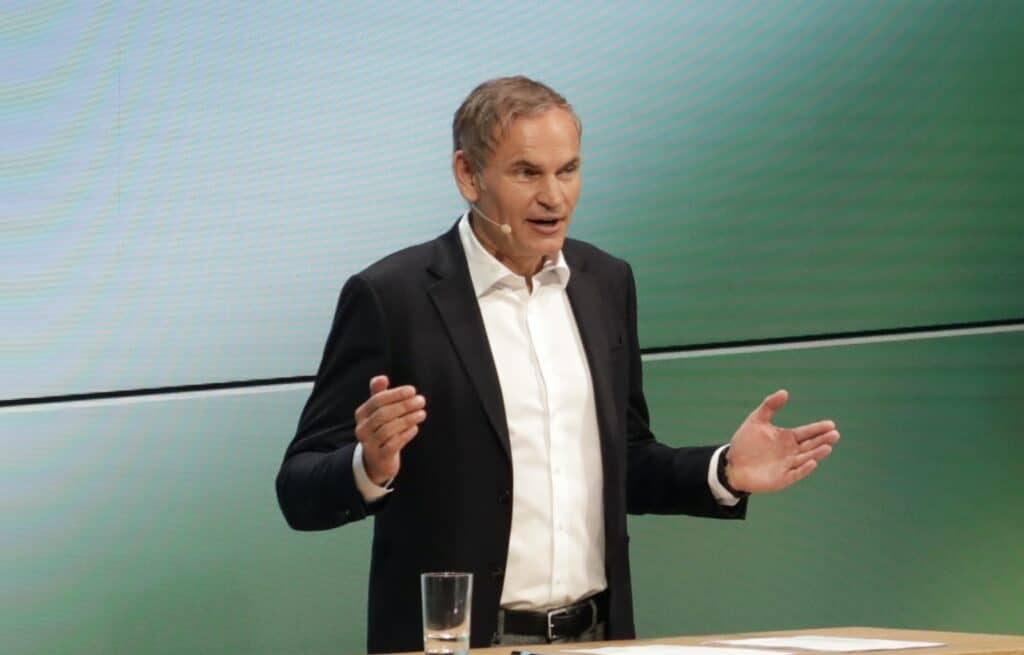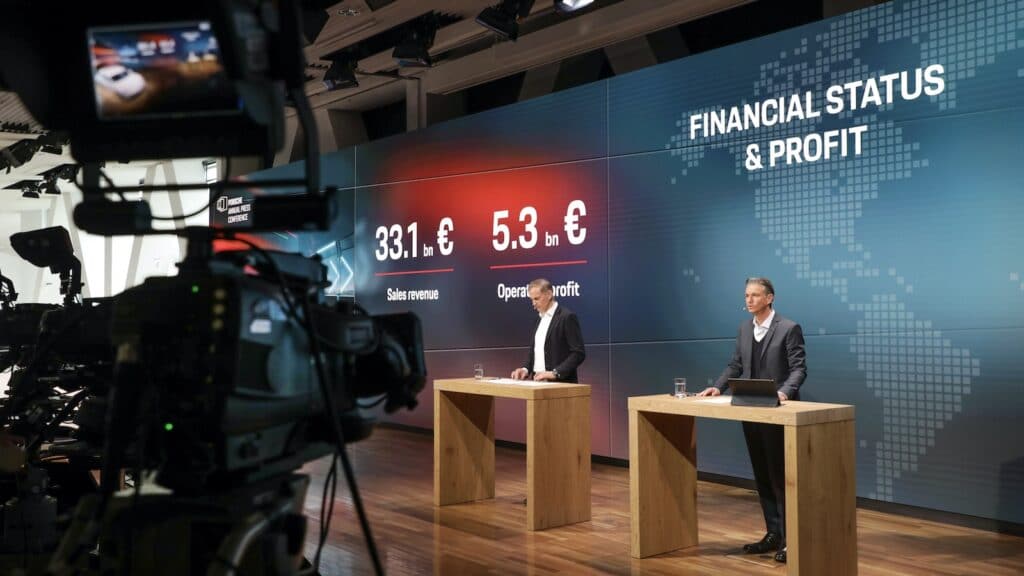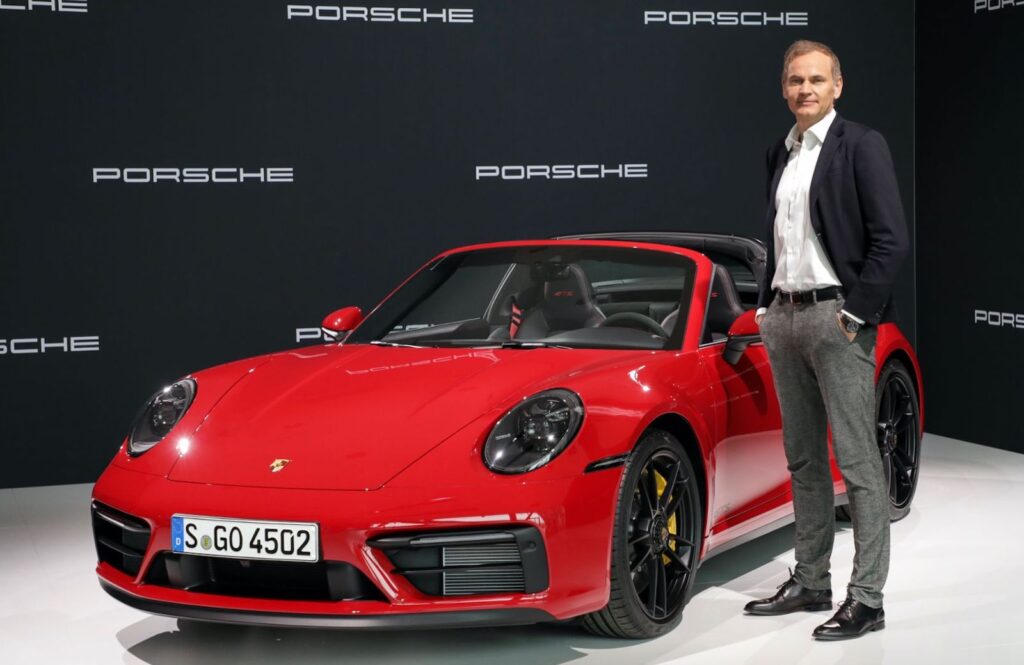Porsche already has one battery-electric vehicle in production and another coming. Now, the automaker says, it’s going to switch the next-generation 718 line to all-electric propulsion, while it’s also set to roll out a hybrid version of the iconic 911.

The German automaker’s CEO outlined Porsche’s new strategy during a media roundtable, revealing plans to accelerate its EV sales targets, with demand for its current models exceeding initial expectations.
“The future of Porsche is electric,” CEO Oliver Blume said Friday morning. “In 2030, the share of all new vehicles with an all-electric drive should be more than 80 percent.”
Until now, Porsche expected plug-in hybrids would make up a significant share of its sales at the end of the decade. It’s not walking away from PHEVs, but it appears to be reading the same tea leaves as the rest of the industry. With only rare exception, manufacturers see BEVs taking the forefront by 2030.
Taycan takes the lead
Porsche introduced the Taycan, its first all-electric model, barely two years ago and it captured 14% of the automaker’s global sales last year at 41,296. By comparison, the flagship 911 generated 38,464 sales. The Taycan and Porsche’s two plug-in hybrids generated 40% of its sales in Europe last year.

The brand’s second BEV, a version of the Macan SUV, will land in showrooms next year. It will be followed by an all-electric 718 sports car in 2025. The 718 is offered in two forms, the Boxster and the Cayman, and both will make the transition to plug power, Blume confirmed.
The move shouldn’t come as a shock. Porsche has been signaling the shift for more than a year and offered a teaser in the form of the Mission R electric race car prototype unveiled last year.
New design
The 718 models may forego the new PPE architecture that will be used on the electric Macan. Instead, some sources suggest, the electrified Boxster and Macan models may borrow the “e-core” platform shown with the Mission R. That placed the heavy battery pack extremely low — enhancing handling by keeping the center of gravity as close to the ground as possible. The Mission R effectively mimicked the layout of a traditional mid-engine vehicle.
With Porsche planning to electrify all of its products in one form or another, there has been plenty of speculation about what that will mean for the vaunted 911. CEO Blume was vague about specifics but ruled out not only an all-electric version, but a plug-in, as well.

For now, at least, the first 911 to electrify will be what he referred to as a “sporty hybrid” that will bear the influence of the Porsche 919 Hybrid Le Mans race car. That said, Blume also suggested there could be “surprises” yet to come from the 911 further down the road.
Porsche isn’t giving up entirely on internal combustion engines. And it is betting $24 million on the development of “e-fuels,” synthetics that could significantly reduce their carbon footprint. They would be “an ideal complement” to EVs, the executive told reporters.
Overcoming obstacles
As with other manufacturers, Porsche is well aware of the roadblocks to wide acceptance of battery-electric vehicles. Blume expanded upon several steps the company is taking to ease the transition. That includes its participation in the Cellforce Group, a joint venture aimed at developing next-generation batteries.
Porsche also is taking a tip from Audi which is working up plans to create its own charging network. It might create unique rest areas where owners not only could plug in but also take a break and relax.
There are other changes coming for the company. Volkswagen has confirmed plans to spin off Porsche as a public company, a move that could help raise more capital for VW’s own EV program.
Blume spoke to reporters after Porsche issued its 2021 financial report. The automaker delivered 301,905 vehicles last year, generation revenues of 33.1 billion euros, or $36.7 billion. That was up 4.4 billion euros, or $4.9 billion. The company’s operating profit, meanwhile, rose 27% year-over-year, to 5.3 billion euros, or $5.9 billion.







